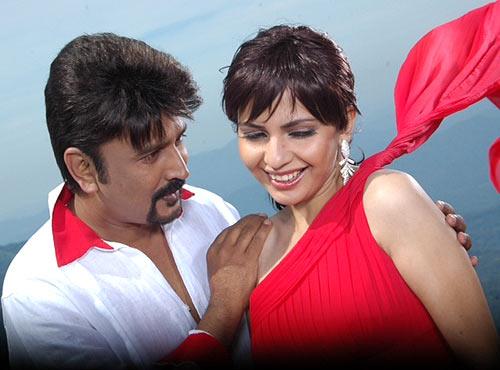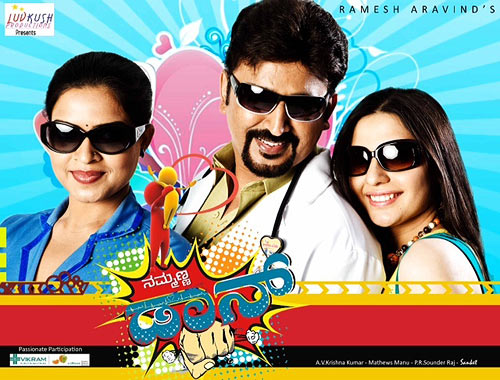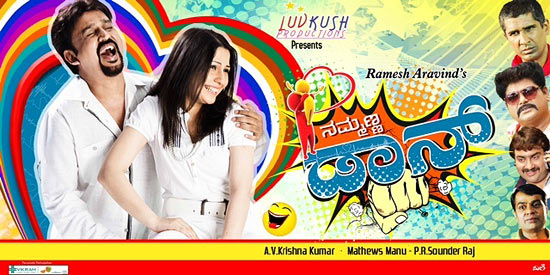 | « Back to article | Print this article |
'I deliberatey decided to stop acting'
Popular Kannada actor Ramesh Aravind's latest directorial venture Nam Anna Don is hitting the screens this Friday.
Ramesh Aravind, who had taken a long break from acting, not only acts in the film but has also written, directed and produced the film under his home banner Luv Kush Films. He last directed a film two-and-a-half years ago.
In this interview with Srikanth Srinivasa, Ramesh Aravind talks about Nam Anna Don and his unique marketing strategy.
What is the film about?
Nam Anna Don is about health care for all. I am trying to say that you cannot let a man die just because he is poor. Today, things have come to such to a pass that a normal heart surgery for a child costs around Rs 1.5 lakh to Rs 2 lakh.
People are dying just because they cannot afford treatment. I wanted to highlight this issue, but in a fun way and not make a documentary out of it.
I play a cardiac surgeon who believes that anyone who comes to my hospital will get cured whether they pay the bill or not.
The cardiac surgery procedures are well researched and the medical facts are in place. There are 22 kids in the film who need cardiac surgeries badly and that forms the crux of the film. The film is about how I achieve the target.
'The film is partly inspired by an actual incident'
Is the film inspired by an actual incident?
Yes and no. I wrote the script and a very strange thing happened after I told a cardiac surgeon the story. He told me that my character is similar to the Argentinean doctor Rene Favaloro.
He told me to do some research on this doctor, who is known as the father of cardiac surgery. Like Dr Arjun in my film, Rene believed that health care should be for all.
Later, I took some dialogues from his speeches and made them my dialogues in the film. The film is not about him. It is a fun film.
Where and how did you pick up so many kids that you needed for this movie?
I was looking for about 30 kids for the movie. A non-government organisation called Dhristi contacted me because they were keen to introduce cinema to their kids for their overall development.
I thought why not make them part of the film. The kids were eager and had a great time. They not only learnt about cinema but they also acted in my movie.
These kids were raw but they were so good. They had never faced the camera before.
'The film is a total family entertainer'
The film has generated curiosity for its innovative publicity and audio launch. What was the whole exercise all about?
We are perhaps the first film in India to release audio on the mobile platform. You will not find audio CDs or tapes of Nam Anna Don in the stores.
My logic was very simple. Personally, I haven't bought a CD for a long time. I have only picked up CDs as a freebie whenever I attended some audio launch function.
Today, few people buy CDs. People listen to music either on FM radio channels or on their mobile handsets. The younger generation is totally glued to their mobile handsets.
So, I thought mobile is a better platform to market our film's music. I sounded out a mobile service provider who was keen on doing it.
Was it a deliberate decision to stop acting in movies for the last one year?
Yes, it was a deliberate decision. I had to take a call on whether to continue acting or get back into direction.
I realised that I enjoyed getting back into direction as all my four previous directorial films enjoyed a good brand value in the multiplexes. Money was spent well and everything worked according to plan.
When I went back to acting during these last two years, I was trying another economic model--finishing the film in fewer days and lower costs. Though the economics worked, the films were not done well.
What is the message that you are trying to convey through this film?
The film is a total family entertainer. The doctors whom I have met agreed with Dr Arjun's philosophy that it is 'people first and profit next'.
"Make your profit but don't make it at the cost of people" is the philosophy of the film. The Indian system does not allow our doctors to follow this philosophy.


